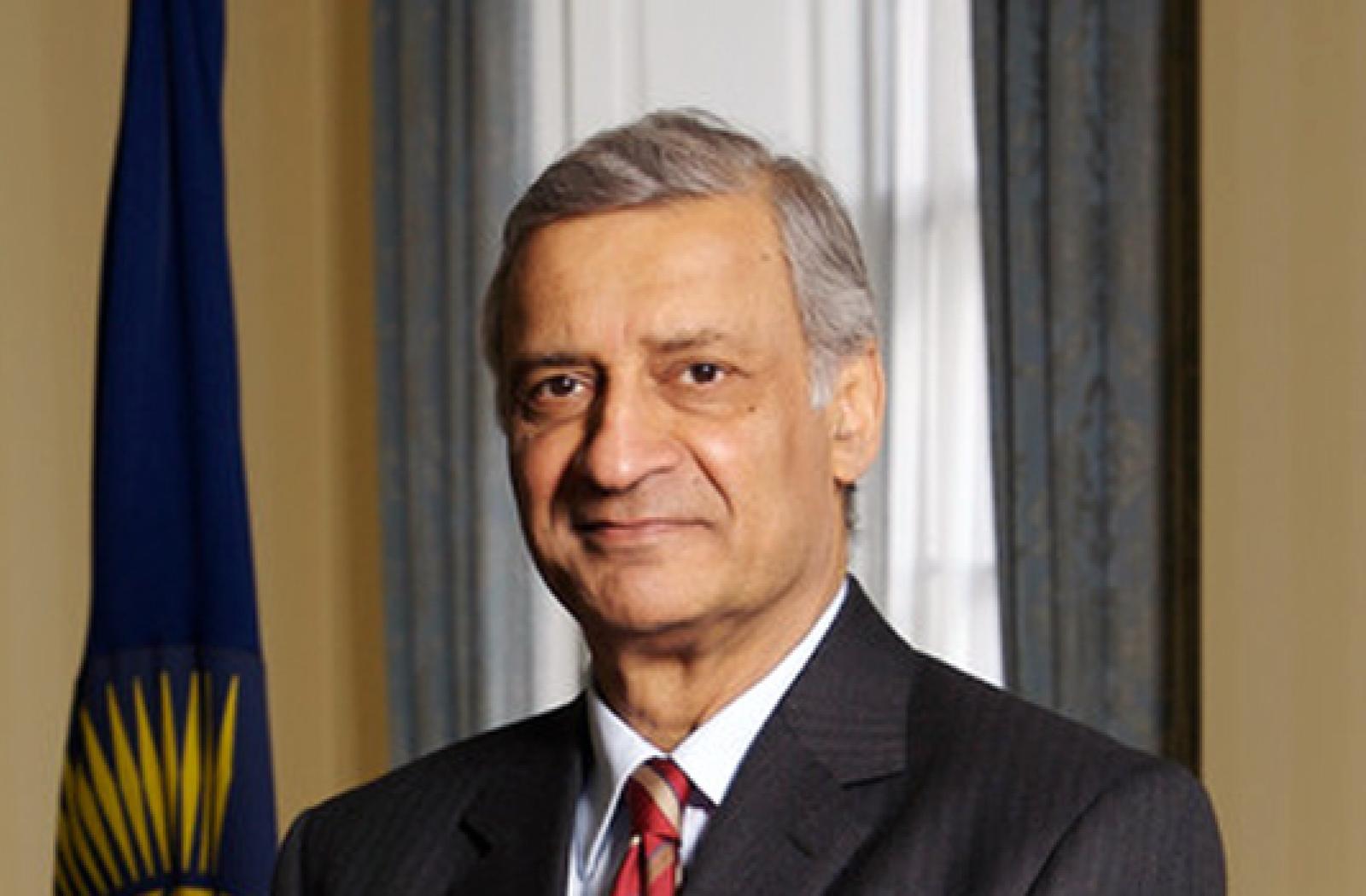Statement by Commonwealth Secretary-General Kamalesh Sharma to mark United Nations Day for South-South Cooperation

In marking United Nations Day for South-South Cooperation, we are reminded of the immense potential for international collaboration between all countries, regardless of size or endowment, for encouraging inclusive and equitable social and economic development through mutual support and encouragement. The rich diversity represented by member states of the Commonwealth makes us particularly aware of the opportunities through South-South cooperation, and has enabled us collectively to be pioneers of innovation in this respect.
Since 2009, 70 per cent of experts deployed under Commonwealth technical assistance programmes have been from developing and emerging economies.
Later this month, the United Nations General Assembly will adopt the New Sustainable Development Goals, and in that context South-South cooperation can play a significant role in fostering good governance responsive to citizens and assisting small and vulnerable states through capacity building and adopting best practices.
In the Commonwealth we have always sought to facilitate and create new opportunities for our member states to learn from each other and share experiences, including within the global South context. We continue to see this as a priority, and work to multiply and nurture the networks and communities of practice that enable such links to flourish. South-South cooperation encourages mutual trust and support, and helps build consensus and joint action so that countries facing similar challenges can tackle them more effectively, including in areas as diverse as human rights and ocean governance. Hubs have been created in election management, health and education - and shortly in access to climate change finance -to enable South-South knowledge exchange, best practice information sharing and collaboration.
A distinctive Commonwealth contribution within international development is our Commonwealth Fund for Technical Cooperation (CFTC), which provides funding for experts recruited from developing Commonwealth member states to be deployed to other Commonwealth countries requiring technical assistance on a variety of development projects. It is important for us to continue leveraging such expertise for the benefit of our member states, particularly the 31 countries in our membership that are classified as small states.
Our guiding principle to development is to seek ‘best fit’, with support for the individual requirements of member states tailored and delivered where it is most needed, while also promoting ‘best practice’ whenever and wherever possible.
Embedding our experts within the institutions of member states enables us to gain a deeper understanding of local contexts, constraints, and opportunities - so that we are better equipped to provide advice and assistance that is relevant, responsive and sensitive to each country’s specific needs.
The Commonwealth specialises in mobilising South-South patterns of co-operation and we are able to use our unique multi-regional experiences to address in innovative ways the challenges faced by small and vulnerable states, including in the areas of local governance, public finance, anticorruption, judicial support and e-governance.
Commonwealth cooperation has seen constitutional implementation experts from Uganda deployed in Kenya; public procurement expertise from Nigeria shared with Sierra Leone; and High Court Judges from Ghana, Nigeria, Solomon Islands and Uganda helping in various Commonwealth jurisdictions to clear case backlogs and improve efficiency within penal systems. We have also supported member countries in their long-term planning and development, including deploying an expert from India to support St Lucia’s national development strategy.
Another example is the way in which the Commonwealth Youth Climate Change Expert Group Meeting brought together young climate change activists, largely from developing and small states, to establish a set of recommendations ahead of the COP21 United Nations Climate Change Conference in Paris in December.
Within the Commonwealth, South-South trade has flourished, advancing relations between developing countries. In 2013, 65 per cent of developing countries’ merchandise exports were destined for other developing countries - an increase of almost 50 per cent since the turn of the millennium. The Commonwealth is working with the Government of India to identify new opportunities for Least Developed Countries (LDCs) to tap into Global Value Chains and trading links in the Asia region. More trading synergy between developing countries will both increase competition, help drive down cost of products and allow countries to grow their economies by gaining additional footholds in the international trading system.
While international assistance by major actors concentrates primarily on direct delivery, the Commonwealth Secretariat’s focus is on utilising its convening power and trusted relationships with member states to mobilise South-South knowledge transfer to improve areas that can sometimes be neglected, such as policy environments and knowledge management systems.
The Commonwealth therefore remains deeply committed to strengthening South-South development cooperation, and to ensuring that collaborative South-South approaches are encouraged and nurtured as we enter the post-2015 development period.
